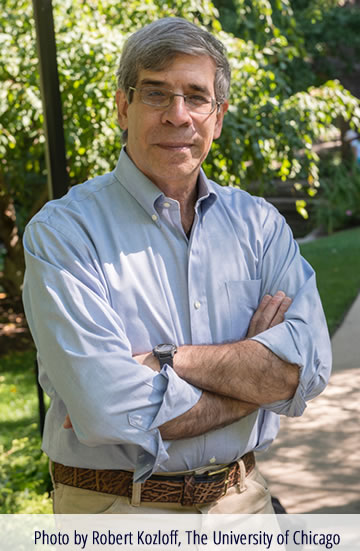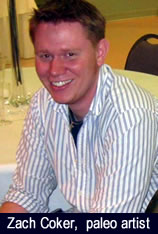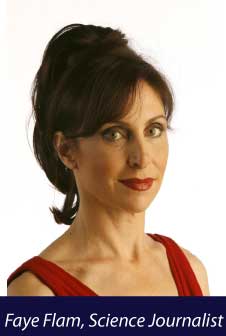

Now That’s Wild Featured Interviews
Looking for information about animal science, evolution, and conservation?
Join us in interviewing top professionals who write for The New York Times, Forbes, Science News, The Economist and the Knight Science Journalism Tracker for MIT.
Our features showcase professionals making a difference in the world by inspiring others to take an active role in conservation in addition to promoting exploratory learning about the natural world.

INTERVIEW with David Orenstein, Ph.D
Dr. David I. Orenstein is a full professor of Anthropology at Medgar Evers College of the City University of New York. He is the co-author of two books, the 2015 Godless Grace: How Non-Believers are Making the World Safer Richer and Kinder, and the 2019 publication of Darwin’s Apostles. A primatologist by early training he has written for numerous national and international freethinker and science publications.
Dr. Orenstein is also a noted civil and human rights activist, representing the American Humanist Association at the United Nations through the NGO/DPI program, and is a sought after speaker on human rights, science education and evolution acceptance.
Dr. Orenstein, is also an ordained humanist chaplain, who serves on the Board of several local and national organizations. Including, The Secular Humanist Society of New York; The Broader Social Impacts Committee of the Hall of Human Origins/Smithsonian Institution, and also the Center for Freethought Equality.

INTERVIEW with Jerry A. Coyne, Ph.D
Jerry A. Coyne, Ph.D is a Professor Emeritus in the Department of Ecology and Evolution at the University of Chicago and a member of both the Committee on Genetics and the Committee on Evolutionary Biology. Jerry received a B.S. in Biology from the College of William and Mary. He then earned a Ph.D. in evolutionary biology at Harvard University in 1978, working in the laboratory of Richard Lewontin. After a postdoctoral fellowship in Timothy Prout’s laboratory at The University of California at Davis, he took his first academic position as assistant professor in the Department of Zoology at The University of Maryland. In 1996 he joined the faculty of The University of Chicago.
Jerry’s work is focused on understanding the origin of species: the evolutionary process that produces discrete groups in nature. To do this, he uses a variety of genetic analyses to locate and identify the genes that produce reproductive barriers between distinct species of the fruit fly Drosophila: barriers like hybrid sterility, ecological differentiation, and mate discrimination. Through finding patterns in the location and action of such genes, he hopes to work out the evolutionary processes that originally produced genetic change, and to determine whether different pairs of species may show similar genetic patterns, implying similar routes to speciation.
Jerry has written over 115 refereed scientific papers and 130 other articles, book reviews, and columns, as well as a scholarly book about his field (Speciation, co-authored with H. Allen Orr). He is a frequent contributor to The New Republic, The Times Literary Supplement, The New York Times, The Washington Post and other popular periodicals.
In addition, Jerry has served as President and Vice President of the Society for the Study of Evolution and as Associate Editor of Evolution and of The American Naturalist. He is the author of the book and blog, Why Evolution is True and is a highly respected scientist.

INTERVIEW with Zach Coker
Zach Coker is a paleo artist breathing new life into incredible animals from Earth’s majestic past and introducing new animals to science. His list of commissioned works include projects for companies specializing in world class fossils, including Pangea Fossils in Canada and Deep Water Megs in Florida. His paintings and drawings are vivid and alive, giving insight into the world of paleontology and the animals that ruled a dynasty.
Zach has formal education in the areas of art, geology and paleontology and takes a unique approach to communicating data and discoveries with paleontologists and across disciplines to bring dinosaurs into the modern world. Zach’s team, including his wife and geologist, Cheryl Wilkes Coker, conduct field studies and research to identify and classify species for discussion for his sketches and commissioned works.
In addition, Zach is bringing dinosaurs to everyone with his campaign, Bringing Dinosaurs to the Classroom, a project creating 3D dinosaur replicas for tactile education programs for schools that can bepurchased or rented. These replicas are scientifically accurate and are available to educational programs everywhere, including low socioeconomic areas that cannot afford field trips to big museums.

“Everyone in the world has the right to enjoy these animals.”
– Richard Attenborough, Jurassic Park

INTERVIEW with Jessica Dimuzio, VMD
Dr. Jessica Dimuzio graduated from the University of Pennsylvania School of Veterinary Medicine, specializing in wildlife preservation. She has conducted research on elephants, rhinos, and wild baboons and taught conservation programs in Africa, Asia, and North America. Dedicated to wildlife conservation, Dr. “D.” loves to get kids excited about wildlife and their natural habitats through her writing, non-fiction storytelling, classroom talks, and nature walks. She provides these programs through Nature Tales and Trails, LLC, the company she founded in 2011.
Her international award-winning book Bark! Bark! Bark for My Park! recounts the true story of how her five-pound puppy, Johnny Angel, saved a 690-acre farm park from destruction and is one of the few books written on saving open space for children. The second in the Johnny Angel series, Bow Wow Wow! Green Beans Now? tells the true tale of her little dog’s love of garden-fresh, mouth-picked green beans and introduces children to organic gardening and the joy of eating homegrown vegetables in a most humorous way. Both books have received the Silver Medal from Mom’s Choice Awards in the Green Earth Category and a rare RECOMMENDED from the US Review of Books.

INTERVIEW with Faye Flam
What is “Evolution” anyway and why should we care? The mere word “evolution” conjures up images in the mind of the public from dinosaur movies to something vaguely half-man-half-ape. Science writer Faye Flam writes columns and blogs explaining how evolution affects your everyday life, from your health to your livelihood. In her former column for the Philadelphia Inquirer called Planet of the Apes, she explained how evolution has shaped our behavior, dietary needs and health problems in regards to our 4 billion years of evolutionary history and its relationship with all organisms on our planet.
A graduate from the California Institute of Technology with a degree in geophysics, Faye Flam is a current science blogger at Forbes and The New York Times. In addition, she is a journalist-in-residence at Ursinus College, Pennsylvania and critiques fellow journalists at the Knight Science Journalism Tracker for MIT.
Faye has worked for Science News, in Washington D.C., and the Economist in London. She is a former longtime science journalist for the Philadelphia Inquirer and is the author of The Score: How the Quest for Sex Has Shaped the Modern Man. Faye is also the author of Carnal Knowledge, a Pulitzer Prize nominated column which explored the science of sex from several disciplines of science including biology, psychology, botany, genetics, neuroscience and anthropology.
